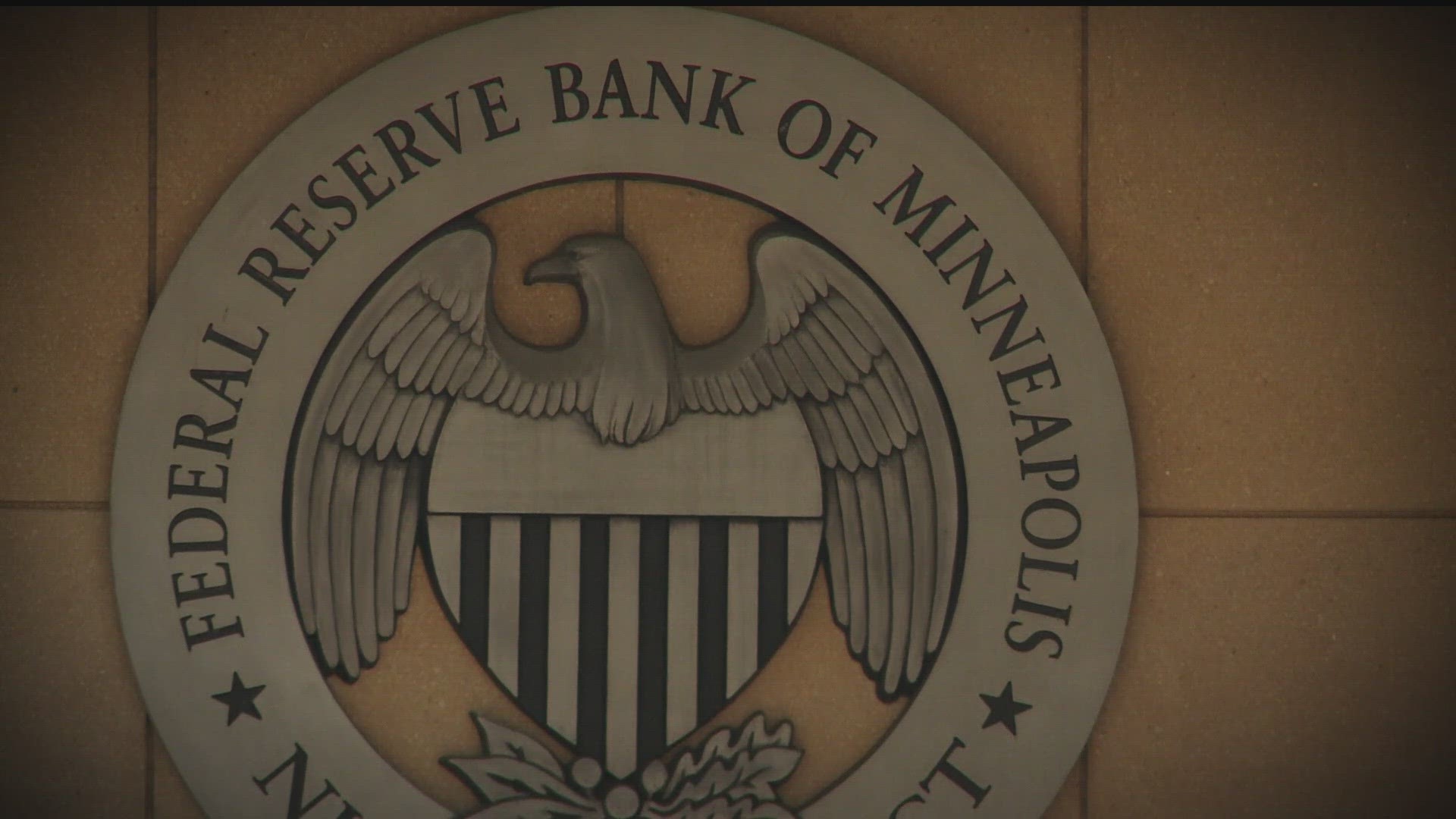MINNEAPOLIS — At a symposium in Jackson Hole, Wyo., on Friday, Federal Reserve Chair Jerome Powell hinted at further interest rate increases by the end of the calendar year, in order to cool inflation that he says "remains too high."
After hitting a peak of 9.1% in June 2022, the nationwide inflation rate as calculated by the Consumer Price Index decreased to 3.2% as of July 2023.
"It is the Fed's job to bring inflation down to our 2% goal," Powell said Friday, "and we will do so."
By that measure, the Twin Cities are ahead of the curve. Back in May, the Minneapolis-Saint Paul region became the first major metro area in the U.S. to accomplish the 2% goal, registering an inflation rate of 1.8%. That figure, as of July, has since fallen to just 1%, meaning inflation here is lower than basically anywhere else in the entire country.
What's behind that 1% inflation rate, exactly?
Ron Feldman, the Chief Operating Officer and First Vice President at the Federal Reserve Bank of Minneapolis, attributed some of the progress to housing. An acceleration in construction across the Twin Cities, he said, is helping to drive down housing costs — which make up a large portion of the Consumer Price Index.
"We are building lots and lots of housing. If you drive around the Twin Cities, you see cranes, you see new buildings going up," said Feldman, who also separately co-chairs the housing task force for the Itasca Project. "So that's part of the story. And part of the story is that in other areas, they are not building as much and more people are moving there, so their housing prices are growing faster."
According to data tracked by the Itasca Project, the seven-county metro area built 21,673 new housing units in 2022, surpassing the group's goal of 18,000 for the fourth year in a row. Overall, the Twin Cities are on track to meet the Itasca Project's 2030 target, which could help the region rebound from the Great Recession's housing plunge.
"It's all kind of linked. Housing in Edina affects housing in Minneapolis which affects housing in St. Paul," Feldman said. "It's one big market."
In Minneapolis specifically, Mayor Jacob Frey said the city built 919 units of deeply affordable last year, the most in history.
According to research by Pew — which was cited by the national media in a Bloomberg article earlier this month — rents in Minneapolis have increased by only 1% since 2017, compared to a national average of 31%.
"We set a tone of increasing the supply of housing in the city of Minneapolis," Frey said in an interview. "The investments we've made in housing have clearly helped us tackle inflation more so than any other city in the country."
However, in an op-ed published this week, Feldman and fellow Minneapolis Fed Senior Vice President Alene Tchourumoff cautioned against falling into a "false sense of complacency" on inflation.
"Filling out this story, a number of observers tied this low inflation rate to a local housing market producing housing at a high rate, which naturally gives us a sense of pride. Is that sense of accomplishment deserved? Yes and no," they wrote. "We agree that housing production should be the focus today and in the future, but it's way too soon to declare victory."
As Feldman and Tchourumoff noted in the op-ed, the Twin Cities are "not outperforming our peers" in terms of housing production.
According to the Itasca Project's dashboard, Minneapolis-Saint Paul produced 6.7 new housing units per 1,000 people in 2022 — higher than cities like Seattle, Portland, Boston, San Francisco, Chicago and Pittsburgh, but far lower than places like Austin, Charlotte and Dallas.
"The housing market isn't free from what government policy is. It'd be great for the state, and localities, to take policy actions that make it easier to build more housing," Feldman said in an interview this week, "The bottom line is, if we don't have more then in the long run, housing prices are going to be higher than they would be otherwise."
Watch more local news:
Watch the latest local news from the Twin Cities and across Minnesota in our YouTube playlist:

